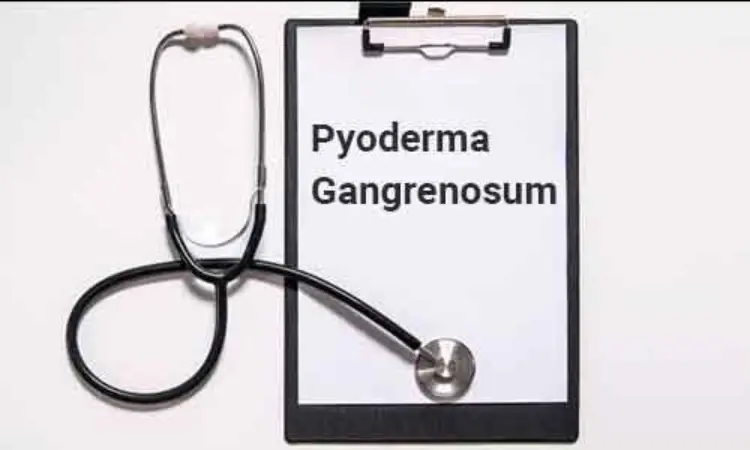- Home
- Medical news & Guidelines
- Anesthesiology
- Cardiology and CTVS
- Critical Care
- Dentistry
- Dermatology
- Diabetes and Endocrinology
- ENT
- Gastroenterology
- Medicine
- Nephrology
- Neurology
- Obstretics-Gynaecology
- Oncology
- Ophthalmology
- Orthopaedics
- Pediatrics-Neonatology
- Psychiatry
- Pulmonology
- Radiology
- Surgery
- Urology
- Laboratory Medicine
- Diet
- Nursing
- Paramedical
- Physiotherapy
- Health news
- Fact Check
- Bone Health Fact Check
- Brain Health Fact Check
- Cancer Related Fact Check
- Child Care Fact Check
- Dental and oral health fact check
- Diabetes and metabolic health fact check
- Diet and Nutrition Fact Check
- Eye and ENT Care Fact Check
- Fitness fact check
- Gut health fact check
- Heart health fact check
- Kidney health fact check
- Medical education fact check
- Men's health fact check
- Respiratory fact check
- Skin and hair care fact check
- Vaccine and Immunization fact check
- Women's health fact check
- AYUSH
- State News
- Andaman and Nicobar Islands
- Andhra Pradesh
- Arunachal Pradesh
- Assam
- Bihar
- Chandigarh
- Chattisgarh
- Dadra and Nagar Haveli
- Daman and Diu
- Delhi
- Goa
- Gujarat
- Haryana
- Himachal Pradesh
- Jammu & Kashmir
- Jharkhand
- Karnataka
- Kerala
- Ladakh
- Lakshadweep
- Madhya Pradesh
- Maharashtra
- Manipur
- Meghalaya
- Mizoram
- Nagaland
- Odisha
- Puducherry
- Punjab
- Rajasthan
- Sikkim
- Tamil Nadu
- Telangana
- Tripura
- Uttar Pradesh
- Uttrakhand
- West Bengal
- Medical Education
- Industry
Adjuvant HBOT is beneficial in treating patients with pyoderma gangrenosum: Study

Brazil: A recent study has revealed that adjuvant hyperbaric oxygen therapy (HBOT) may provide some benefits in treating pyoderma gangrenosum patients, particularly those with multiple comorbidities precluding them from receiving more traditional treatments.
The study findings were published online in the Journal of the European Academy of Dermatology and Venereology on March 20, 2024
"After HBOT sessions initiation, 58.4% of the patients achieved complete lesion healing, and 20.8% showed an "improved lesion status," the researchers reported. However, 20.8% of the patients did not experience improvement with HBOT.
Pyoderma gangrenosum is a painful, rare, and difficult-to-treat neutrophilic dermatosis often linked with underlying medical conditions such as hematologic malignancies or inflammatory bowel disease. It is often a challenging condition for diagnosis and treatment. First, the diagnosis can be delayed. Pyoderma gangrenosum patients do not always present to dermatologists and can go through rounds of broad-spectrum systemic antibiotics, local wound care, and even surgical debridement before making a correct diagnosis. Second, even with the correct diagnosis, treatment is challenging.
Treatment of Pyoderma gangrenosum mainly has two main goals — first, cessation of the neutrophilic inflammation, and, second, healing the chronic wound.
Against the above background, Gisele Viana de Oliveira, Medical Sciences School of Minas Gerais, Belo Horizonte, Brazil, and colleagues conducted a literature review of case reports and series to evaluate the outcomes of using HBOT as an adjuvant treatment in pyoderma gangrenosum patients.
The study is a review of 32 case reports and two case series comprising 48 patients with pyoderma gangrenosum treated with HBOT. In the review, about 60% of the patients experienced complete healing of lesions.
The key findings of the study were as follows:
- Hyperbaric oxygen therapy was utilized as an adjuvant therapy in 93.7% of the patients and as solo therapy in 6.3% of the patients.
- After HBOT session initiation, 58.4% of the patients achieved complete lesion healing, and 20.8% showed an "improved lesion status."
- 20.8% of the patients did not experience improvement with HBOT.
The researchers suggest it to be an excellent idea and fit within the already established indications for HBOT, as these are chronic wounds. Additionally, based on the small retrospective data set, indicates that the intervention is helpful in many cases.
The article's authors were careful to note that most patients had received adjuvant therapy. "This is expected as the proposed mechanism of action of HBOT in chronic is angiogenesis and increased tissue oxygenation. These effects are likely more relevant to chronic wound healing versus the underlying neutrophilic inflammation seen in pyoderma gangrenosum," Jonathan Jeter, a dermatologist in the US Army and is currently practicing at the McDonald Army Health Center in Fort Eustis, Virginia, suggested.
He added, "If HBOT is available to you, this would be an excellent treatment option to have in your back pocket for a patient with pyoderma gangrenosum who has stabilized with medical therapy but needs a little help with the healing process."
Reference:
Xavier, F., Guimarães, N. S., Diniz, R. C., & Canabrava, P. P. Hyperbaric oxygen therapy as an adjuvant treatment in pyoderma gangrenosum: A scoping review. Journal of the European Academy of Dermatology and Venereology. https://doi.org/10.1111/jdv.19943
Dr Kamal Kant Kohli-MBBS, DTCD- a chest specialist with more than 30 years of practice and a flair for writing clinical articles, Dr Kamal Kant Kohli joined Medical Dialogues as a Chief Editor of Medical News. Besides writing articles, as an editor, he proofreads and verifies all the medical content published on Medical Dialogues including those coming from journals, studies,medical conferences,guidelines etc. Email: drkohli@medicaldialogues.in. Contact no. 011-43720751


